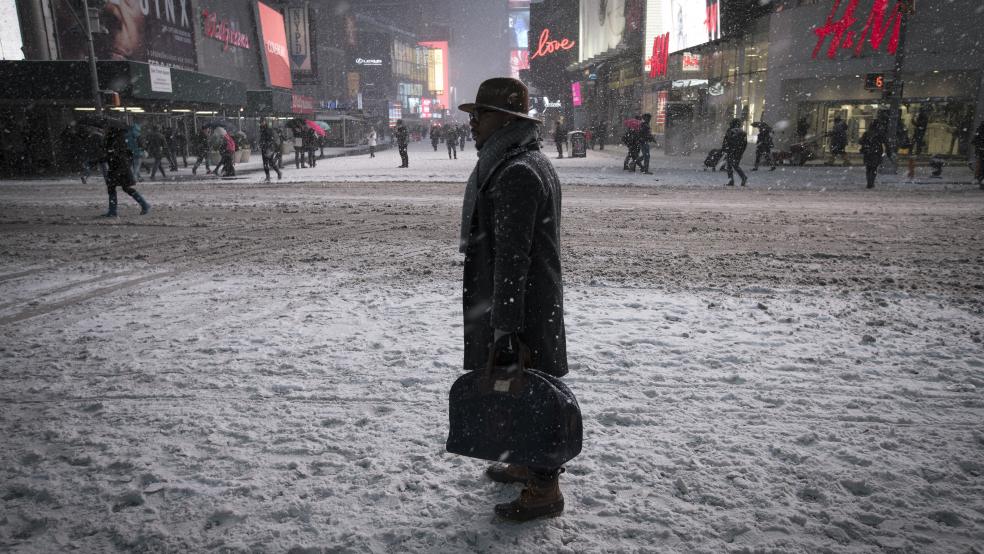This week's winter storm fell far short of its "historic" billing, but the financial losses from the response could be much more severe.
Although firm estimates will need to gauge how quickly businesses are able to reopen after a driving ban and public-transportation stop ground much of the region's economies to a halt, it is possible that over-preparation for the winter storm cost states in the Northeast hundreds of millions of dollars—with some predictions crossing $1 billion.
A 2014 study from IHS Global Insight found that a major storm with "impassable" roads could have a significant economic impact with just a one-day shutdown. The research showed that a single day's shutdown in New York costs about $700.17 million, while Massachusetts loses about $265.12 million.
Related: How Bad Will This Winter Be? What Weather Pros Know and Don’t Know
In fact, the study found that "the economic impact of snow-related closures far exceeds the cost of timely snow removal."
Two thirds of the direct economic losses of snow-related shutdowns come from hourly workers' pockets, that study said. Also of concern will be the indirect financial losses from the snow preparations, including loss of retail sales and sales tax revenues.
As the storm was bearing down on the northeast, Cowen predicted that 2 percent of region's sales and traffic could be lost—but this assumed that stores would be closed through Thursday.
Working off of the IHS numbers, the Boston Globe predicted the direct and indirect costs could add up to $1 billion.
Still, the overall economic impact could be relatively muted—the $1 billion estimate is a far cry from TheStreet's $16 billion projection based on earlier forecasts—as many businesses would be able to resume normal functioning on Tuesday.
"We think the economic impact of the storm is going to be relatively small," said Evan Gold, senior vice president of weather advisory firm Planalytics.
Related: 10 Must-Have Items for Your Disaster Survival Kit
"We're estimating at about $500 million, and that's simply based on the duration of the storm, the timing of the storm, and the population centers that are impacted," he said in a "Squawk Box" interview.
No matter the eventual cost, New York Mayor Bill de Blasio said his office was taking a safety-first strategy.
"When we're dealing with a natural disaster that we don't get to decide whether it's coming or not, we can safely say it will have an [economic] impact, but our job right now is to keep people safe," he said in a Monday news conference.
This article originally appeared in CNBC.
Read more at CNBC:
Retail risk factor: Storm hit these stores hardest
Meteorologists apologize for huge blizzard miss
Why women face special retirement hurdles


